A stepparent usually comes into a child’s life intending to be a caring adult figure. However, bonding and earning trust can take some time, and it greatly depends on how the stepparent chooses to approach the relationship. Some try to do it in a more friendly and laid-back way, while others try to insert themselves into the family with authority, which doesn’t always work.
Like it happened with this stepfather who forcefully tried to replace his stepchildren’s biological dad and even erase his memory from the household. The children tried bringing up this issue with their mom, but she wanted to hear none of it, which pushed them to go no contact.
Scroll down to find the full story and conversation with Maria Natapov, stepparenting and co-parenting coach and founder of Synergistic Stepparenting, Gayla Grace, author and stepparenting coach, and Amy Stone, certified life coach and founder of Stepparent Success School, who kindly agreed to tell us more about stepparenting.
Some stepparents choose to insert themselves in the new family with force and authority
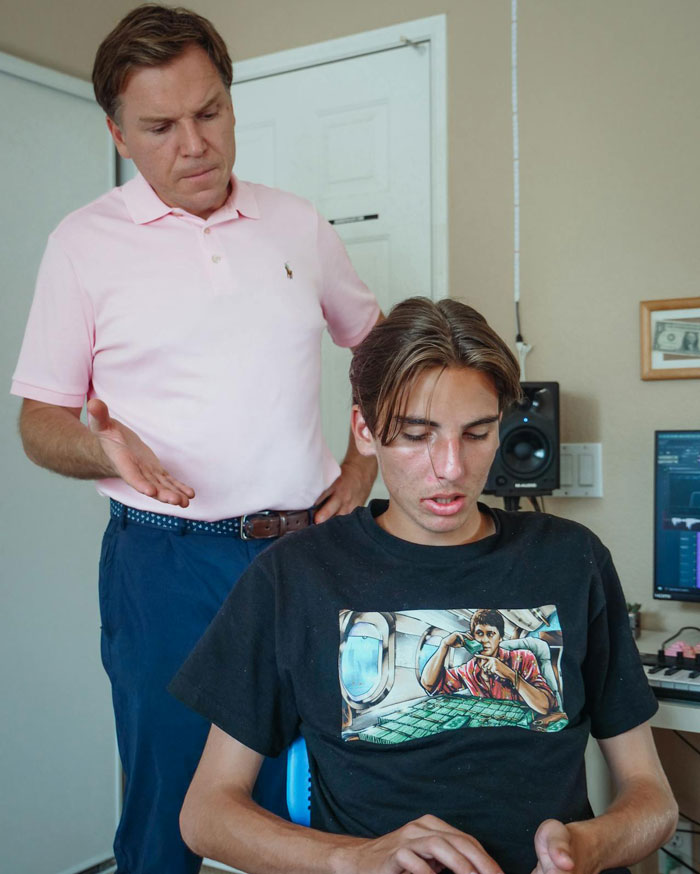
Image credits: Kindel Media / Pexels (not the actual photo)
This stepfather even forbade mentioning the biological father in the household, which pushed the kids to go no contact and leave their mom behind
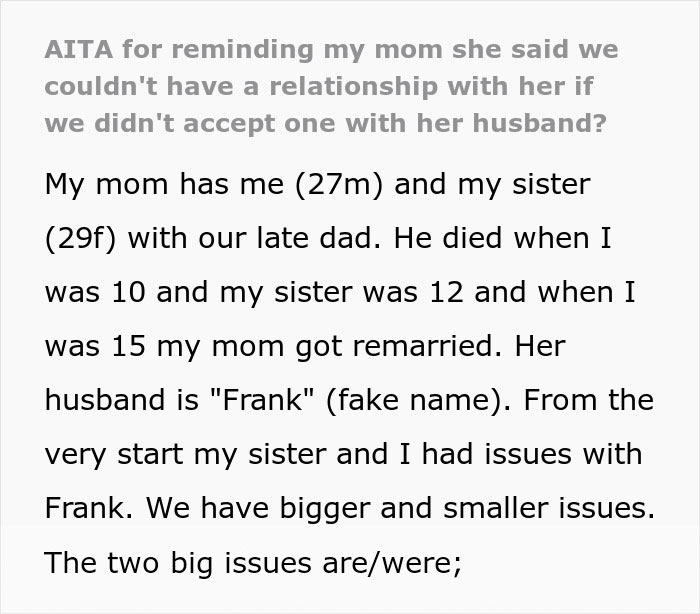
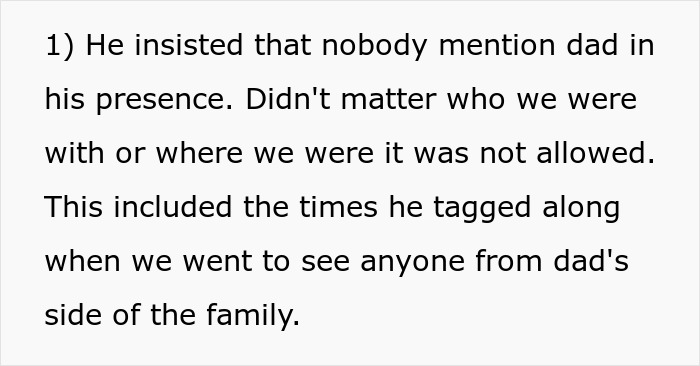
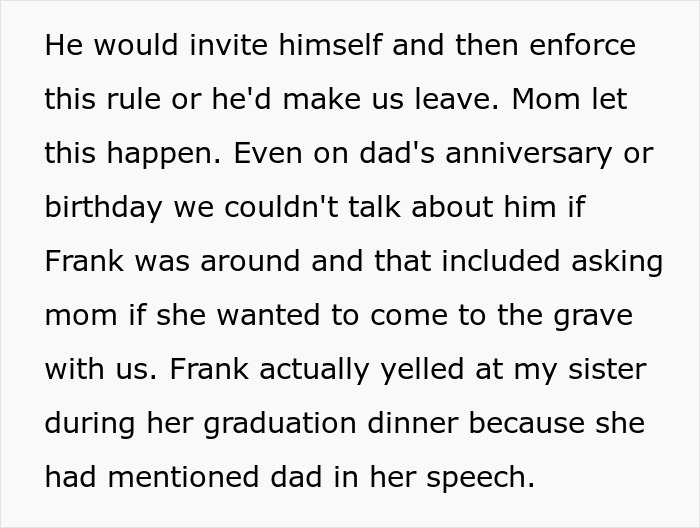
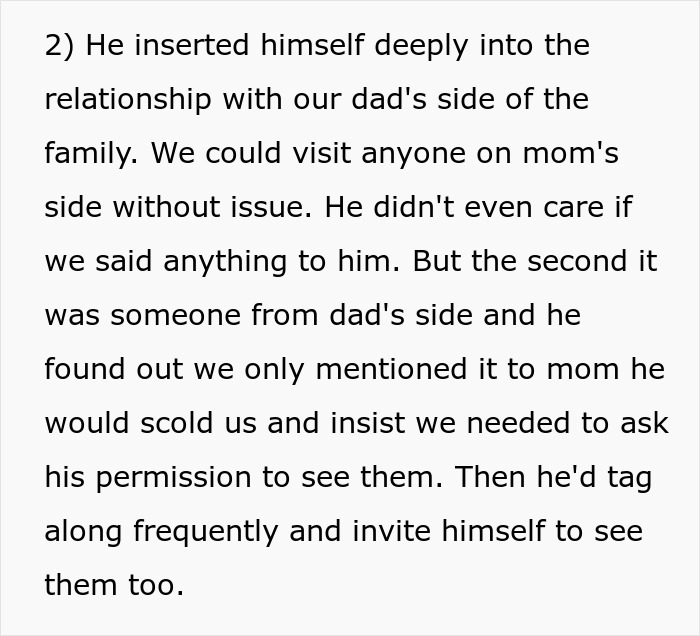


Image credits: Julia M Cameron / Pexels (not the actual photo)
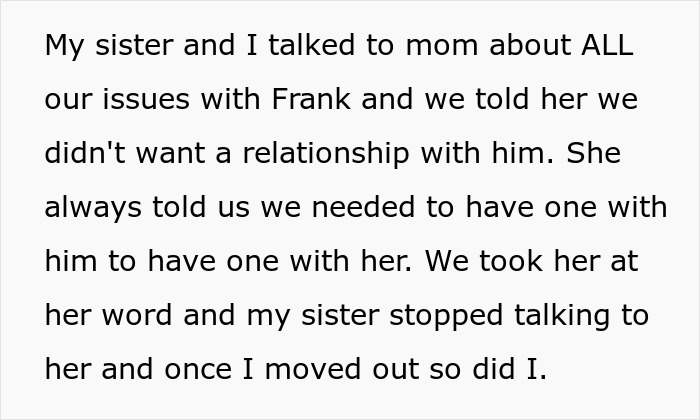
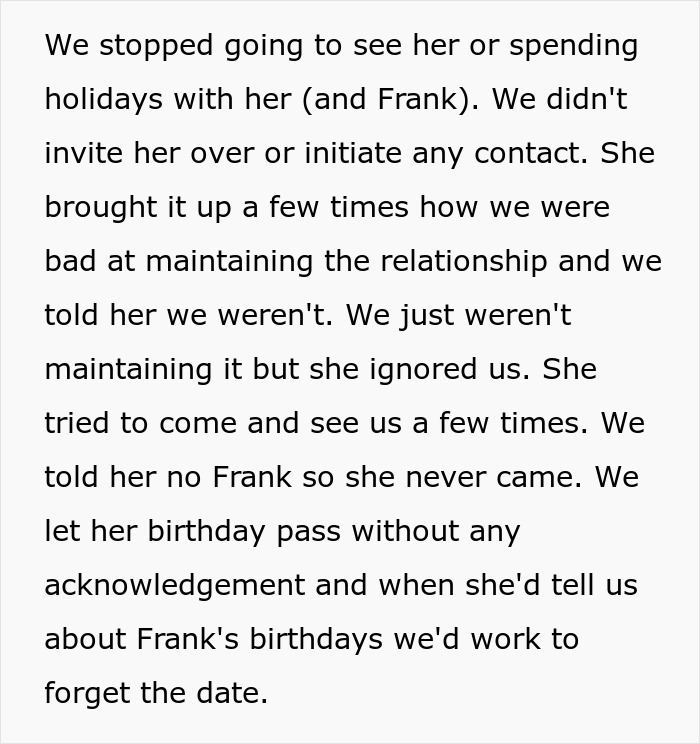
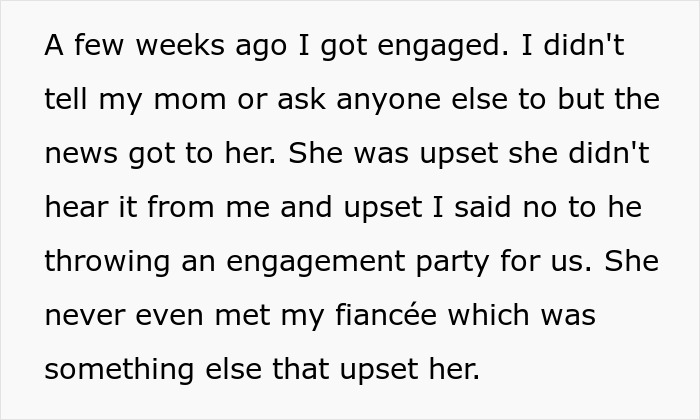


Image credits: Timur Weber / Pexels (not the actual photo)
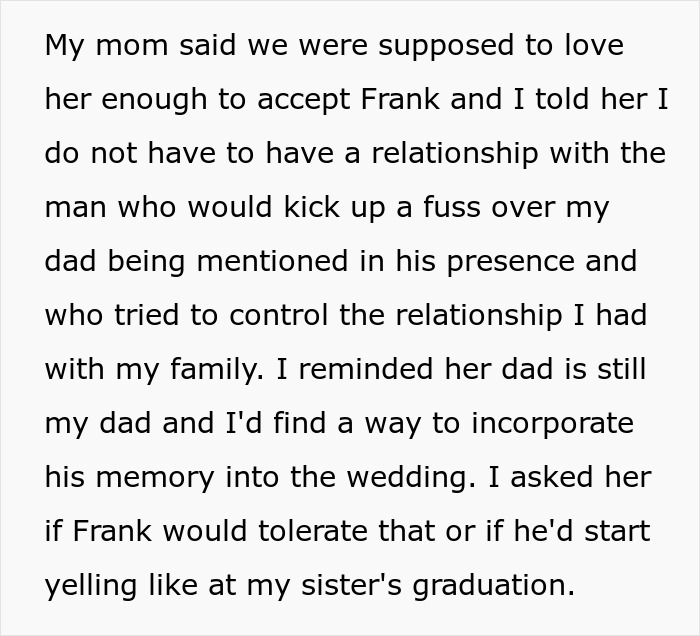


Image credits: Embarrassed-Nerve987

Image credits: Kindel Media / Pexels (not the actual photo)
Stepparenting is tricky because the person is coming into an already-established family dynamic
Stepparenting is a different kind of tricky because the person is coming into an already-established family with a certain order, rules, and routines. The kids are used to them, and they don’t want someone to change them. However, these changes are unavoidable as they have to happen in order to fit the new person in, which can make the stepparent the least favored person for a while.
“Children have a natural loyalty and connection toward their biological parent. If they connect with a stepparent, they can feel they’ve betrayed their biological parent, which creates internal conflict for them,” adds author and stepparenting coach Gayla Grace. “Also, stepparents often put too much pressure on a child to love and accept them into the family without allowing the child time to form a relationship slowly.”
To find balance, compromise, and peace, the stepparent needs to find ways to develop a connection with children while taking slow steps. However, there are many issues they may face that can hinder children’s views of them and the overall integration in the family.
One of them is failing to observe and follow boundaries. “New adults joining a family should honor and respect all of the earlier relationships while at the same time working to create the new family dynamic that includes everybody,” says Amy Stone, certified life coach and founder of Stepparent Success School.
Another issue they might face is wanting to step in and be involved when big decisions are made. There’s nothing wrong with wanting to provide stepparenting help, but the biological parents (if they are present) are primarily responsible for making decisions regarding their children.
“Children, particularly those age 7 and older, often won’t respond well to discipline from a stepparent. Trust and connection need to come first. Over time, IF a strong, respectful bond develops and both the biological parent and the child are comfortable, the stepparent may be able to support the household’s boundaries and expectations. But even then, it’s usually best if the primary discipline comes from the child’s parent,” explains Maria Natapov, stepparenting and co-parenting coach and founder of Synergistic Stepparenting.
“The stepparent’s role is more about supporting the parent-child relationship, not replacing or controlling it. The best rule of thumb for the stepparent to follow is focusing on connection over consequences in their relationship with their stepchild(ren).”

Image credits: Kindel Media / Pexels (not the actual photo)
Stepparents should avoid some things to keep their relationship with stepchildren as smooth as possible
If a parent notices that their new partner is being too strict, authoritative or controlling with their kids, experts advise them to have an honest and open conversation, offering a perspective of what they believe is best for their child.
“The path through a disagreement, including one over parenting styles, is to practice talking to each other in a productive and constructive way,” says Stone. “If it’s a small issue, you may be able to work it out without help. If you need help learning to talk to each other in a constructive way a coach, mediator or therapist can sometimes help offer tools and a safe space to practice.”
Lastly, Grace says, “It’s best for stepparents to understand that stepchildren cannot be pushed or coerced into building a relationship before they’re ready. Taking the long road approach toward relationship building with a gentle and trustworthy demeanor will encourage a stepchild to move toward a stepparent.”
Many readers thought the kids were right to go no contact
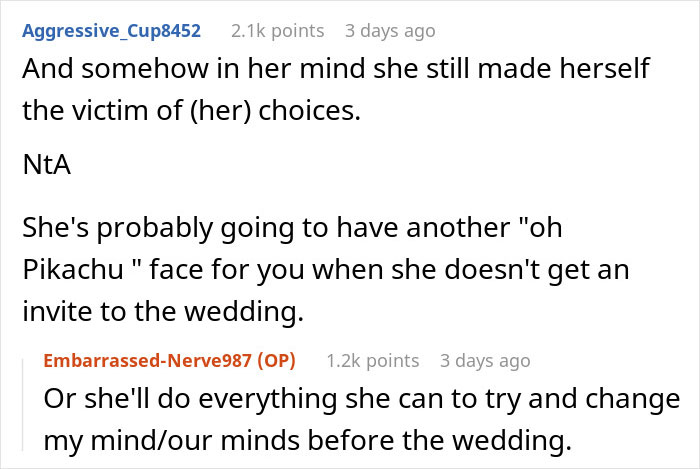




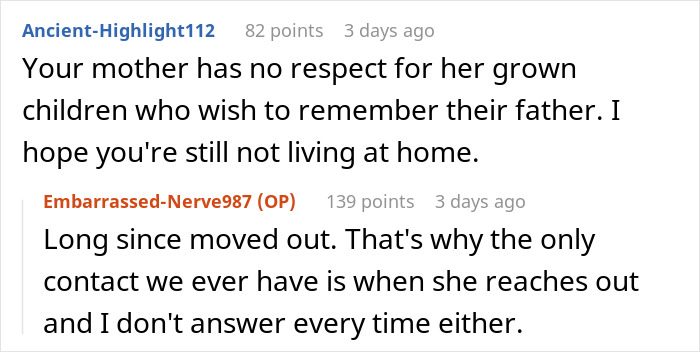

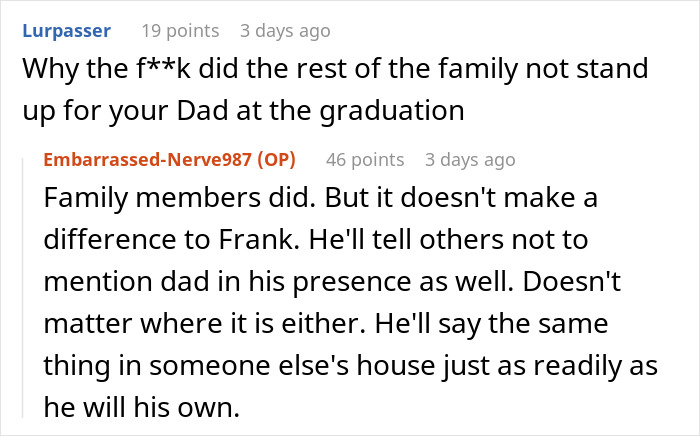

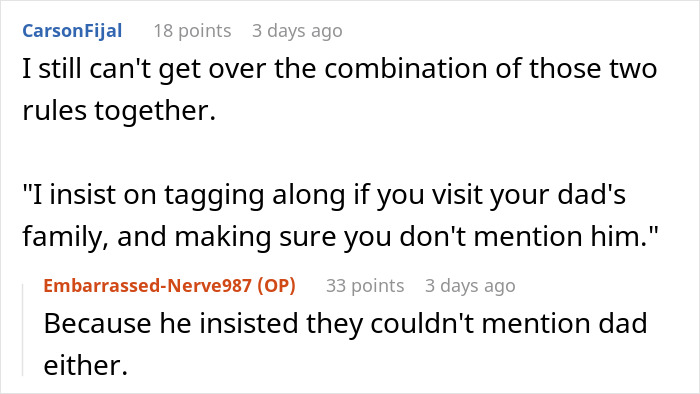

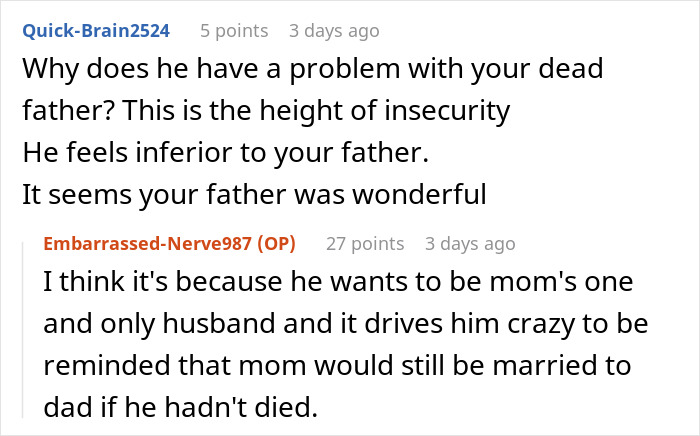








While some believed everyone was at fault in this situation









